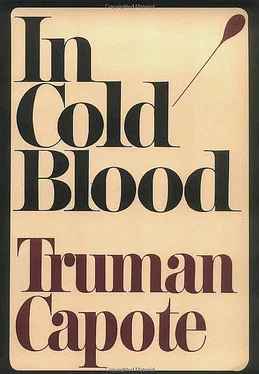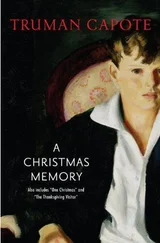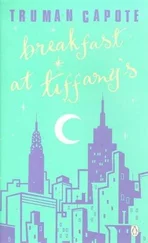But he knew. Presently, tortured by a need to “tell somebody,” he confided in another prisoner. “A particular friend. A Catholic. Kind of very religious. He asked me, ‘Well, what are you gonna do, Floyd?’ I said, Well, I didn’t rightly know—what did he think I ought to do? Well, he was all for me going to the proper people. Said he didn’t think I ought to live with something like on my mind. And he said I could do it without anybody inside guessing I was the one told. Said he’d fix it. So the next day he got word to the deputy warden—told him I wanted to be ‘called out.” Told the deputy if he called me to his office on some pretext or other, maybe I could tell him who killed the Clutters. Sure enough, the deputy sent for me. I was scared, but I remembered Mr. Clutter, and how he’d never done me no harm, how at Christmas he’d give me a little purse with fifty dollars in it. I talked to the deputy. Then I told the warden hisself. And while I was still sitting there, right there in Warden Hand’s office, he picked up the telephone—“
The person to whom Warden Hand telephoned was Logan Sanford. Sanford listened, hung up, issued several orders, then placed a call of his own to Alvin Dewey. That evening, when Dewey left his office in the courthouse at Garden City, he took home with him a manila envelope.
When Dewey got home, Marie was in the kitchen preparing supper. The moment he appeared, she launched into an account of household upsets. The family cat had attacked the cocker spaniel that lived across the street, and now it seemed as if one of the spaniel’s eyes might be seriously damaged. And Paul, their nine-year-old, had fallen out of a tree. It was a wonder he was alive. And then their twelve-year-old, Dewey’s namesake, had gone into the yard to burn rubbish and started a blaze that had threatened the neighborhood. Someone—she didn’t know who—had actually called the Fire Department.
While his wife described these unhappy episodes, Dewey poured two cups of coffee. Suddenly, Marie stopped in the middle of a sentence and stared at him. His face was flushed, and she could tell that he was elated. She said, “Alvin. Oh, honey. Is it good news?” Without comment, he gave her the manila envelope. Her hands were wet; she dried them, sat down at the kitchen table, sipped her coffee, opened the envelope, and took out photographs of a blond young man and a dark-haired, dark-skinned young man—police-made “mug shots.” A pair of semi-coded dossiers accompanied the photographs. The one for the fair-headed man read:
Hickock, Richard Eugene (WM) 28. KBI 97 093; FBI 859 273A. Address: Edgerton, Kansas. Birthdate 6-6-31. Birthplace: K.C., Kans. Height: 5-10. Weight: 175. Hair: Blond. Eyes: Blue. Build: Stout. Comp: Ruddy. Occup: Car Painter. Crime: Cheat & Defr.& Bad Checks. Paroled: 8-13-59. By: So. K.C.K.
The second description read:
Smith, Perry Edward (WM) 27-59. Birthplace: Nevada. Height: 5-4. Weight: 156. Hair: D. Brn. Crime: B&E. Arrested: (blank). By: (blank). Disposition: Sent KSP 3-13-56 from Phillips Co. 5-10 yrs. Rec. 3-14-56. Paroled: 7-6-59.
Marie examined the front-view and profile photographs of Smith: an arrogant face, tough, yet not entirely, for there was about it a peculiar refinement; the lips and nose seemed nicely made, and she thought the eyes, with their moist, dreamy expression, rather pretty—rather, in an actorish way, sensitive. Sensitive, and something more: “mean.” Though not as mean, as forbiddingly “criminal,” as the eyes of Hickock, Richard Eugene. Marie, transfixed by Hickock’s eyes, was reminded of a childhood incident—of a bobcat she’d once seen caught in a trap, and of how, though she’d wanted to release it, the cat’s eyes, radiant with pain and hatred, had drained her of pity and filled her with terror. “Who are they?” Marie asked.
Dewey told her Floyd Wells’ story, and at the end he said, “Funny. The past three weeks, that’s the angle we’ve concentrated on. Tracking down every man who ever worked on the Clutter place. Now, the way it’s turned out, it just seems like a piece of luck. But a few days more and we would’ve hit this Wells. Found he was in prison. We would’ve got the truth then. Hell, yes.”
“Maybe it isn’t the truth,” Marie said. Dewey and the eighteen men assisting him had pursued hundreds of leads to barren destinations, and she hoped to warn him against another disappointment, for she was worried about his health. His state of mind was bad; he was emaciated; and he was smoking sixty cigarettes a day. “No. Maybe not,” Dewey said. “But I have a hunch.” His tone impressed her; she looked again at the faces on the kitchen table. “Think of him,” she said, placing a finger against the front-view portrait of the blond young man. “Think of those eyes. Coming toward you.” Then she pushed the pictures back into their envelope. “I wish you hadn’t shown me.”
Later that same evening, another woman, in another kitchen, put aside a sock she was darning, removed a pair of plastic-rimmed spectacles, and leveling them at a visitor, said, “I hope you find him, Mr. Nye. For his own sake. We have two sons, and he’s one of them, our first-born. We love him. But… Oh, I realized. I realized he wouldn’t have packed up. Run off. Without a word to anybody—his daddy or his brother. Unless he was in trouble again. What makes him do it? Why?” She glanced across the small, stove-warmed room at a gaunt figure hunched in a rocking chair—Walter Hickock, her husband and the father of Richard Eugene. He was a man with faded, defeated eyes and rough hands; when he spoke, his voice sounded as if it were seldom used. “Was nothing wrong with my boy, Mr. Nye,” Mr. Hickock said. “An outstanding athlete—always on the first team at school. Basketball! Baseball! Football! Dick was always the star player. A pretty good student, too, with A marks in several subjects. History. Mechanical drawing. After he graduated from high school June, 1949—he wanted to go on to college. Study to be an engineer. But we couldn’t do it. Plain didn’t have the money. Never have had any money. Our farm here, it’s only forty-four acres—we hardly can scratch a living. I guess Dick resented it, not getting to college. The first job he had was with Santa Fe Railways, in Kansas City. Made seventy-five dollars a week. He figured that was enough to get married on, so him and Carol got married. She wasn’t but sixteen; he wasn’t but nineteen hisself. I never thought nothing good would come of it. Didn’t, neither.”
Mrs. Hickock, a plump woman with a soft, round face un-marred by a lifetime of dawn-to-dark endeavor, reproached him. “Three precious little boys, our grandchildren—there, that’s what came of it. And Carol is a lovely girl. She’s not to blame.”
Mr. Hickock continued, “Him and Carol rented a good-size house, bought a fancy car—they was in debt all the time. Even though pretty soon Dick was making better money driving a hospital ambulance. Later on, the Mark Buick Company, a big outfit there in Kansas City, they hired him. As a mechanic and car painter. But him and Carol lived too high, kept buying stuff they couldn’t no how afford, and Dick got to writing checks. I still think the reason he started doing stunts such as that was connected with the smash-up. Concussed his head in a car smash-up. After that, he wasn’t the same boy. Gambling, writing bad checks. I never knew him to do them things before. And it was along about then he took up with this other gal. The one he divorced Carol for, and was his second wife.”
Mrs. Hickock said, “Dick couldn’t help that. You remember how Margaret Edna was attracted to him.”
“ ‘Cause a woman likes you, does that mean you got to get caught?” Mr. Hickock said. “Well, Mr. Nye, I expect you know as much about it as we do. Why our boy was sent to prison. Locked away seventeen months, and all he done was borrow a hunting rifle. From the house of a neighbor here. He had no idea to steal it, I don’t give a damn what nobody says. And that was the ruination of him. When he came out of Lansing, he was a plain stranger to me. You couldn’t talk to him. The whole world was against Dick Hickock—that’s how he figured. Even the second wife, she left him—filed for divorce while he was in prison. Just the same, lately there, he seemed to be settling down. Working for the Bob Sands Body Shop, over in Olathe. Living here at home with us, getting to bed early, not violating his parole any shape or fashion. I’ll tell you, Mr. Nye, I’ve not got long, I’m with cancer, and Dick knowed that—least ways, he knowed I’m sickly—and not a month ago, right before he took off, he told me, ‘Dad, you’ve been a pretty good old dad to me. I’m not ever gonna do nothing more to hurt you.’ He meant it, too. That boy has plenty of good inside him. If ever you seen him on a football field, if ever you seen him play with his children, you wouldn’t doubt me. Lord, I wish the Lord could tell me, because I don’t know what happened.”
Читать дальше












